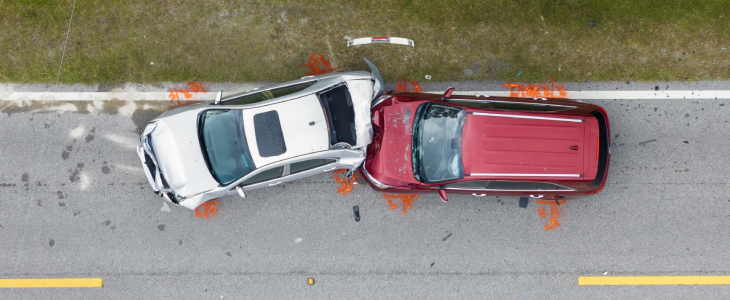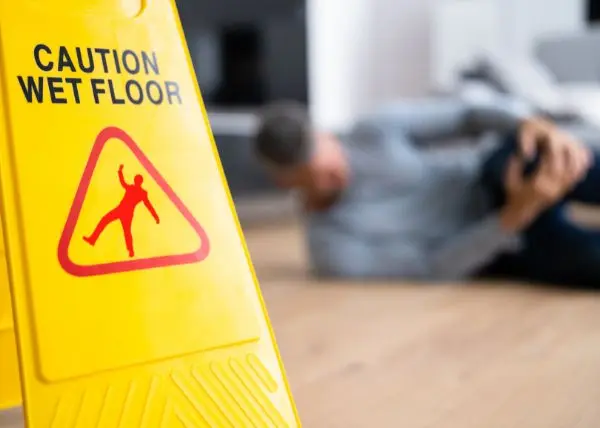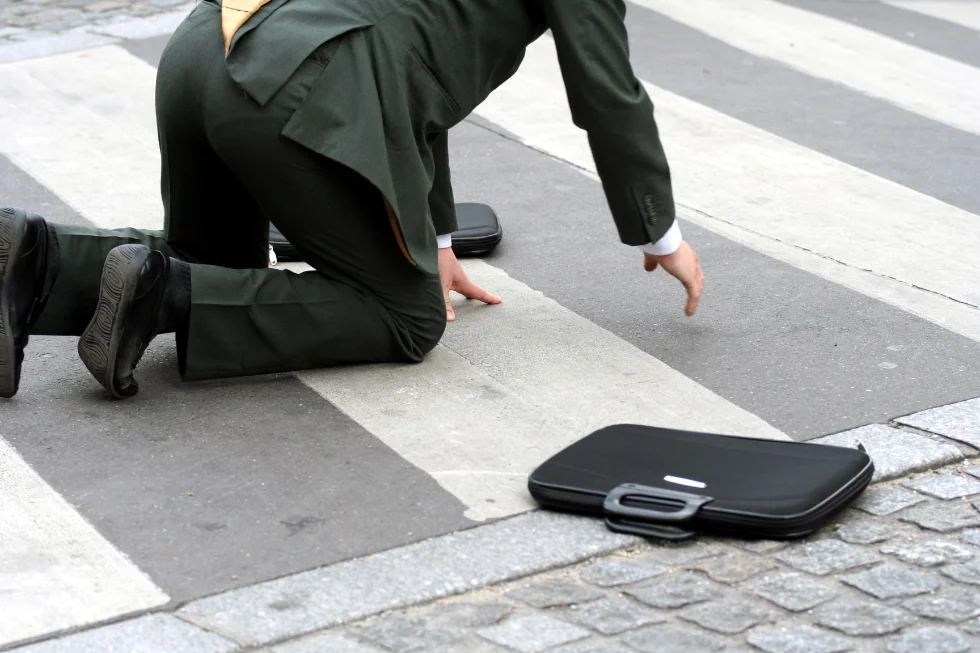Getting Sued: A Driver’s Dilemma
The aftermath of a car accident often brings many unforeseen consequences. One such possibility is the daunting prospect of being sued. Getting served with legal papers can be a jarring experience, leaving you uncertain about your rights, responsibilities, and the path forward. In this article, we’ll delve into everything you need to know if you find yourself in the unenviable position of being sued from a car accident.
What to Do When You Get Sued After a Car Accident
Receiving a lawsuit can feel like a punch in the gut. However, panic shouldn’t cloud your judgment. Here’s a step-by-step guide to help you navigate this legal minefield:
**1. Don’t Panic: Stay Calm and Collected**
It’s natural to feel overwhelmed when faced with a lawsuit. But succumbing to panic will only cloud your ability to make sound decisions. Breathe deeply, remind yourself you’re not alone, and approach the situation with a clear head. Stay composed, gather your thoughts, and get organized. Remember, lawsuits are common after car accidents, and there are proven strategies to help you navigate this challenge effectively.
**2. Contact Your Insurance Company ASAP**
Your auto insurance policy typically includes coverage for legal expenses arising from car accidents. Alert your insurer about the lawsuit promptly to activate your policy’s protection. They will assign an attorney to represent you and guide you through the legal process.
**3. Seek Legal Counsel**
While your insurance company will provide an attorney, consider consulting an independent legal professional for a comprehensive evaluation of your case. They can provide unbiased advice, negotiate on your behalf, and advocate for your interests throughout the process.
**4. Gather Evidence and Documents**
Prepare a thorough documentation of the accident, including the police report, medical records, photos of the damage, and witness statements. These pieces of evidence will support your case and provide a clear picture of the circumstances surrounding the incident.
**5. Review the Lawsuit Carefully**
Take time to thoroughly examine the lawsuit. Identify the specific claims being made against you, the amount of damages being sought, and the legal basis for the action. Understanding the contents of the lawsuit will help you formulate an appropriate defense strategy.
**6. Respond to the Lawsuit Within the Deadline**
The lawsuit will specify a deadline by which you must respond. Failing to meet this deadline could result in a default judgment against you. Consult with your attorney to prepare a timely and effective response.
**7. Prepare for Negotiations or Trial**
Most car accident lawsuits settle before going to trial. Be prepared to negotiate a fair settlement that protects your interests. However, if a settlement cannot be reached, you may need to proceed to trial to present your case before a judge or jury.
**Additional Tips:**
– Stay organized and keep records of all communication and documentation related to the lawsuit.
– Be truthful and cooperative with your attorney and insurance company.
– Don’t make any public statements about the accident or the lawsuit without consulting your attorney.
– Remember that you have rights and options throughout the legal process.
– Don’t be afraid to seek support from trusted family, friends, or a therapist if needed.
Getting Sued from a Car Accident
Getting sued after a car accident can be a stressful and confusing experience. If you’re facing a lawsuit, it’s crucial to understand your rights and options. One of the most important steps is to determine liability—who is legally responsible for the accident.
Determine Liability
Determining liability for a car accident involves gathering evidence to establish who was at fault. This includes:
- Police reports: These documents typically contain witness statements, diagrams of the accident scene, and an officer’s opinion on who caused the crash.
- Medical records: These provide documentation of injuries sustained, which can help establish the extent of damages.
- Property damage estimates: These show the cost to repair or replace damaged vehicles and other property.
- Eyewitness accounts: Statements from people who saw the accident can provide valuable insights into how it happened.
Once you have gathered this evidence, you need to review it carefully and determine who was negligent in causing the accident. Negligence means that someone failed to act reasonably or prudently, resulting in harm to another person. Factors to consider include:
- Duty of care: All drivers owe a duty of care to other road users, which includes following traffic laws and acting in a safe and reasonable manner.
- Breach of duty: If a driver violates a traffic law or fails to drive safely, they may be considered to have breached their duty of care.
- Causation: It must be shown that the driver’s breach of duty directly caused the accident and the plaintiff’s injuries.
- Damages: The plaintiff must prove that they suffered actual damages as a result of the accident, such as medical expenses, lost wages, or pain and suffering.
Getting Sued from a Car Accident: What You Need to Know
Getting sued after a car accident can be a stressful experience. Here, we will delve into the complexities of getting sued from a car accident, highlighting crucial steps to safeguard your interests. When you find yourself on the receiving end of a lawsuit, it’s imperative to act promptly. Understanding the legal process and your rights can help you navigate this challenging situation effectively.
Gather Evidence
Building a solid case hinges on collecting irrefutable evidence that supports your version of events. A police report, meticulously documenting the accident’s details, serves as a vital piece of evidence. Medical records provide a comprehensive account of your injuries, establishing the extent of your physical and emotional suffering. Don’t overlook witness statements; they corroborate your testimony and strengthen your case. Furthermore, photographs of the accident scene, vehicle damage, and your injuries offer visual proof of the incident’s severity.
Contact Insurance Company
Informing your insurance company about the lawsuit is crucial. They are obligated to provide legal representation and cover the costs associated with your defense. However, it’s essential to remember that insurance companies have their best interests in mind and may not always prioritize your needs. Consider consulting an attorney to ensure your rights are adequately represented.
Hire an Attorney
Navigating the legal complexities of a lawsuit necessitates the expertise of a qualified attorney. They can provide invaluable guidance throughout the process, protecting your interests and building a robust defense. An attorney can assess the merits of the case, negotiate with the plaintiff’s attorney, and represent you in court if necessary. Remember, choosing the right attorney is paramount; their experience, reputation, and communication skills can significantly impact the outcome of your case.
Respond to Complaint
Once you’ve been served with a lawsuit, you must respond within the specified timeframe. Failing to do so could result in a default judgment against you. Your attorney will carefully review the complaint, identify any inaccuracies or inconsistencies, and craft a compelling response that outlines your defense. This response will set the stage for the legal proceedings that will follow.
Go Through the Discovery Process
Discovery involves exchanging information between the parties involved in the lawsuit. Both sides can request documents, interrogatories (written questions), and depositions (sworn testimony). This process aims to uncover all relevant facts and evidence. Cooperation during discovery is essential, as it can potentially lead to a settlement or strengthen your case before trial.
Getting Sued from a Car Accident: What to Do and When
If you’ve recently been involved in a car accident, you might be wondering what to do if you get sued. It’s a scary thought, but it’s important to know your rights and what steps to take to protect yourself. In this article, we’ll discuss what you need to know about getting sued from a car accident, including how to consult with an attorney, what to do if you’re served with a lawsuit, and how to respond to a complaint. We’ll also provide some tips on how to stay calm and protect your rights throughout the process. So, if you find yourself in this situation, don’t panic – just read on for some helpful advice.
Consult an Attorney
If you’ve been served with a lawsuit, it’s imperative to consult with a lawyer right away. An experienced attorney can help you understand your legal rights and options, and guide you through the process of responding to the lawsuit. They can also help you negotiate with the other party’s attorney and represent you in court if necessary. Hiring an attorney may seem like an added expense, but it’s worth it to have someone on your side who can protect your interests. You wouldn’t go to court to represent yourself for a traffic ticket, would you? So don’t try to handle a lawsuit on your own – get an attorney!
What to Do If You’re Served with a Lawsuit
If you’re served with a lawsuit, don’t panic. The first thing you should do is read the document carefully. It will tell you who is suing you, what they’re alleging, and what they’re seeking in damages. Once you’ve read the lawsuit, you should contact an attorney immediately. They will be able to explain your rights and options, and help you develop a strategy for responding to the lawsuit. Remember, you have a limited amount of time to respond to a lawsuit, so it’s important to act quickly.
Responding to a Complaint
Once you’ve consulted with an attorney, they will help you prepare a response to the complaint. This is a legal document that sets forth your defenses to the lawsuit. Your attorney will work with you to gather evidence and prepare arguments to support your case. The response to the complaint is an important document, so it’s important to make sure it’s done correctly. Once you’ve filed your response, the court will schedule a hearing to discuss the next steps in the case.
Staying Calm and Protecting Your Rights
Getting sued can be a stressful experience, but it’s important to stay calm and protect your rights. Here are a few tips:
1. Don’t talk to the other party’s attorney or insurance company without your own attorney present.
2. Don’t sign anything without your attorney’s approval.
3. Keep a record of all communications with the other party and their attorney.
4. Be honest with your attorney about everything.
5. Don’t get discouraged. Lawsuits can take time to resolve, but with the help of an experienced attorney, you can get through it.
Remember, you’re not alone. Many people get sued each year. By following these tips, you can protect your rights and get through this difficult time.
Getting Sued From a Car Accident
Getting sued after a car accident can be a stressful and confusing experience. You may be wondering what to do next and how to protect your rights. Here are few things you need to know if you are getting sued from a car accident:
First, it is important to stay calm and not panic. Getting sued is not the end of the world, and there are a number of things you can do to protect yourself.
The first thing you should do is contact your insurance company. They will be able to provide you with guidance and support throughout the process.
Next, you should contact an attorney. An attorney can help you understand your rights and options, and can represent you in court.
Negotiate a Settlement
In many cases, you can negotiate a settlement with the other party’s insurance company. This is often the best way to resolve a car accident lawsuit, as it can save you time and money.
Negotiating a settlement can be a complex process, but there are few things you can do to increase your chances of success:
- Be prepared to provide documentation to support your claim.
- Be willing to compromise.
- Don’t be afraid to ask for help from an attorney.
If you are unable to reach a settlement with the other party’s insurance company, you may have to go to court.
Going to Court
Going to court can be a daunting experience, but it is important to remember that you have the right to a fair trial.
If you are going to court, it is important to be prepared. This means gathering all of the evidence you have and rehearsing your testimony.
You should also dress professionally and arrive on time for your court date.
The trial process can be long and stressful, but it is important to remember that you are not alone. Your attorney will be there to support you every step of the way.
Getting Sued From a Car Accident: Understanding Your Rights and Options
If you’re reading this article, chances are you’ve found yourself on the receiving end of a lawsuit stemming from a car accident. Being sued can be a daunting and stressful experience, but it’s important to know that you have options and that you’re not alone. In this comprehensive guide, we’ll walk you through the legal process, provide you with practical advice, and answer some of the most common questions you may have.
What Does It Mean to Be Sued?
When someone files a lawsuit against you, they are essentially accusing you of causing them harm or injury. In the context of a car accident, the plaintiff (the person suing you) is alleging that you were negligent or otherwise responsible for the accident and that they have suffered damages as a result. These damages can include medical expenses, lost wages, pain and suffering, and more.
What to Do When You’re Sued
Receiving a lawsuit can be unsettling, but it’s crucial to remain calm and respond promptly. The first step is to contact your insurance company and notify them of the lawsuit. They will typically assign you an attorney to represent you in the case. It’s important to cooperate fully with your attorney and provide them with all necessary information.
Negotiating a Settlement
In most cases, car accident lawsuits are resolved through settlements. A settlement is an agreement between the plaintiff and the defendant (you) in which the plaintiff agrees to drop the lawsuit in exchange for a sum of money. Negotiating a settlement can be a complex process, and it’s essential to have an experienced attorney guiding you.
Going to Trial
If you cannot reach a settlement, you may need to go to trial to resolve the lawsuit. In a trial, both sides will present their evidence and arguments to a judge or jury. The judge or jury will then decide whether you are liable for the plaintiff’s injuries and, if so, what damages you owe them.
What to Expect at Trial
Going to trial can be a lengthy and stressful process. Typically, it involves the following steps:
- Jury selection: A jury of six to twelve people will be selected to hear your case.
- Opening statements: Both attorneys will give opening statements outlining their respective cases.
- Presentation of evidence: Both sides will present evidence, such as witness testimony, medical records, and expert opinions.
- Closing arguments: Both attorneys will summarize their cases and make final arguments to the jury.
- Jury deliberation: The jury will deliberate in private until they reach a verdict.
- Verdict and judgment: The jury will issue a verdict, which will determine the outcome of the case. The judge will then enter a judgment based on the verdict.





Leave a Reply